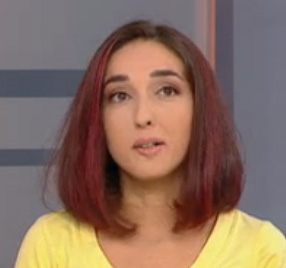It is trend to address youngsters as the digital generation. Kids born after 2000 are indeed unable to imagine the world without a few screens – of the TV set, the tablet, the smartphone and the desktop. Information reaches them in huge volumes while they learn new technology with the same ease that their parents showed while playing hopscotch.
Experts argue that these kids have a few advantages. In the first place, they are enterprising, judging from the fact that 72% of high school students are keen to start a business of their own and close to 40% are convinced they will coin an innovation that will change the world. Today’s children and teens are growing up quite informed and interested in the problems of the global world. In the meantime, they tend to be strongly influenced by their families where personal choices are concerned.
“Since 2010 parents have become more liberal, i.e. rules and limits for using the internet have eased, and this means greater risk for children”, contends Evelina Lafchiiska, a psychologist from Parents Association.
The fact that the young start using the internet without parental control is the source of many challenges for them, and when they feel disturbed online, they do not know whom to address. Responsibility is in the hands of digital parents.
 What does this mean? Evelina Lafchiiska explains:
What does this mean? Evelina Lafchiiska explains:
„Digital parents are all parents who are lucky or unlucky to live in 21 c. Parents today cannot refer to the experience of their own parents; sometimes they do not have much digital experience, and the challenges are many even to those with serious digital skills. It is so, because internet has long ceased being a simple technological platform, and has grown into a very interactive and social space. In turn, kids interact with a great number of people – and almost from the time they are born they are present on Facebook, Viber, Skype and other networks.”
According to Evelina Lafchiiska, digital parents worldwide are faced with the need to help children as they develop early online communication skills. These skills are vital for better orientation in an ocean of information.
„For example, there are many cases when children come across untrue or shocking information. There are posts of the type – “If you don’t share this, your mother is going to die”. This comes as a powerful shock to young kids, because when aged 10 children accept the world literally and cannot tell truth from deception. In such cases we recommend parental control programs, because parents can thus control and limit the time when internet is used, as well as the content. The number of parents using such programs is on the rise, but is not large enough”, the psychologist says.
As to teens, the parent’s task is to predispose them to share their activities online. In vein of thought, a poll conducted at the end of 2016 suggests that half of the children in Bulgaria have not discussed cases of disturbing communication online with their parents.
„Well, of course kids reply that they talk to their mothers first, then to their friends and last – to their fathers. Definitely, friends are a very important source of information. This is good to some extent but has its setbacks too, because children lack in social skills and experience and this spells risk. For instance, they have no idea how to react to online harassment”, psychologist Evelina Lafchiiskasays. She recommends that in such cases communication should be terminated at once, correspondence should be saved, the person should be blocked and insults should be left unanswered. Children can also refer to savenet.bg or to the cyber scouts.
At the initiative of the Safe Internet Center and Parents Association there are already 200 trained cyber scouts in Bulgaria. They are kids from different towns and villages able to help their peers in trouble. Cyber scouts often organize campaigns aimed to disseminate information about online risks and how children can deal with them. The most successful among them receive prizes every year, on the Safe Internet Day which falls on the second Tuesday of February.
English Daniela Konstantinova
Photos: Parents Association
Is it possible that "Virtues and Religions" will be included in the curriculum and will be mandatory from 2026? This is a debate that has seen different points of view expressed in the last few weeks. "The introduction of mandatory..
A unique creative workshop "A Small Seed of Kindness" will open its doors on Palm Sunday, and its place is even more special - Garden "Inspiration" in the town of Bozhurishte near the Bulgarian capital. "I love coming here. Look at the smiles of..
The opportunities for high-quality higher education in French in Bulgaria will be presented during an educational exhibition in Skopje. The event is part of the campaign "Continuons en français - let's study in French in Bulgarian..

+359 2 9336 661
